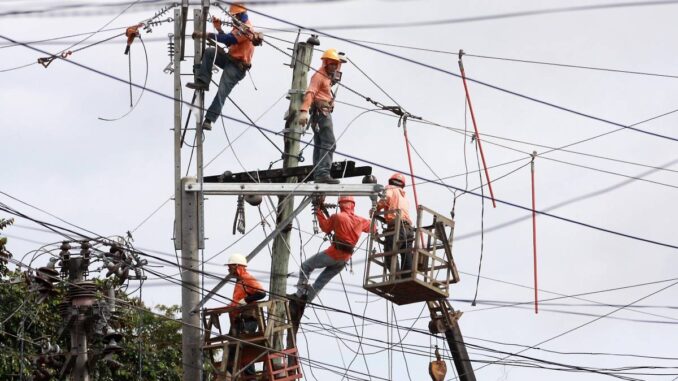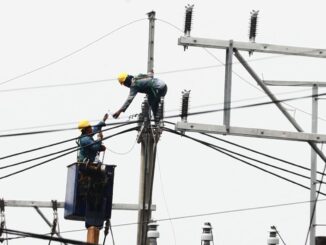
MANILA Electric Co. (Meralco) said on Monday it will be charging its customers P0.2189 less per kilowatt-hour (kWh) in January.
The January billing for a typical household will be P11.7428, down from December’s P11.9617, Meralco said.
Residential customers consuming 200 kWh will be charged around P44 less.
Meralco attributed the lower rate to the P0.1313 per kWh drop in the generation charge after the Wholesale Electricity Spot Market (WESM) charge went down by P0.8840 and the Independent Power Producers (IPPs) charge by P0.1593.
Meralco said WESM reduced its charges after average peak demand and average capacity in the Luzon Grid both went down.
IPP charges were also down because of the appreciation of the peso, affecting 97 percent of IPP costs that were dollar-denominated, together with the lower cost of fuel and higher dispatch of the First Gas-Sta. Rita plant.
The reductions in turn tempered the P0.5638 per kWh increase in charges from Power Supply Agreements (PSAs) due to lower plant dispatch.
WESM, IPPs, and PSAs accounted for 34 percent, 30 percent, and 36 percent, respectively, of Meralco’s total energy requirement for the period.
As for the other parts of the bill transmission and other charges also registered a net reduction of P0.0876 per kWh, while pass-through charges for generation and transmission are paid to the power suppliers and the grid operator, respectively, while taxes, universal charges, and Feed-in Tariff Allowance (FIT-All) are all remitted to the government.
Meralco’s distribution charge, on the other hand, has not moved since the P0.0360 per kWh reduction for a typical residential customer in August 2022.
Meralco reminded customers to practice energy efficiency despite lower rates for January to better manage their electricity consumption as the dry season approaches.





Be the first to comment